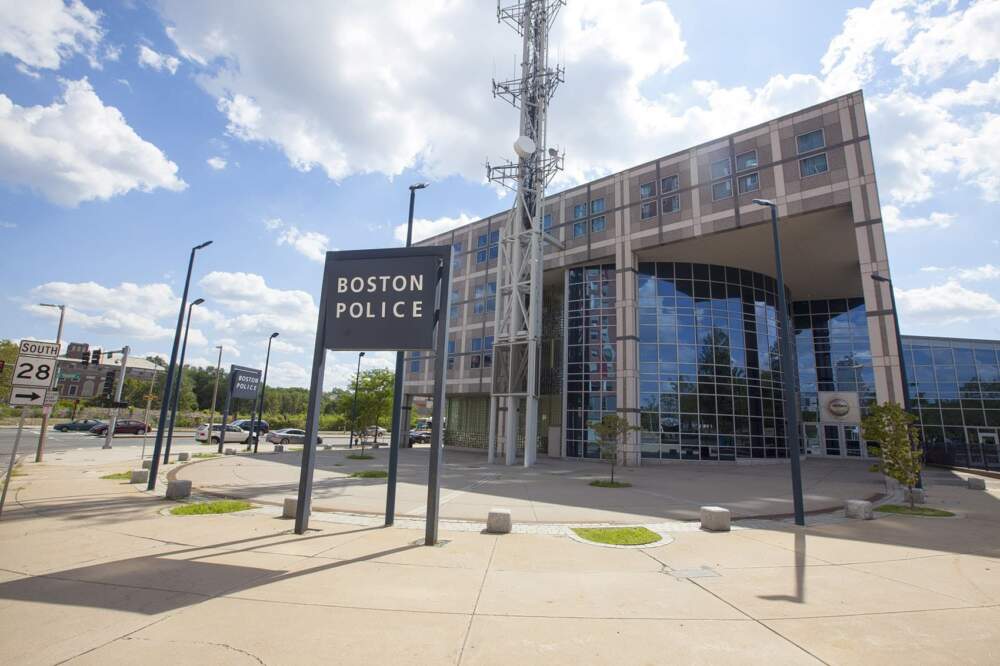Advertisement
Boston City Council approves police intelligence unit funding despite progressive pushback

The Boston City Council on Wednesday approved about $3.4 million in grants for the controversial intelligence-gathering arm of the Boston Police Department.
The money will allow the Boston Regional Intelligence Center to hire eight new data analysts. The center, housed at Boston police headquarters, was formed in 2005 to reduce crime and prevent terrorism by sharing intelligence with local, state and federal law enforcement partners.
The vote caps off a political fight that's pitted the body's left wing against Mayor Michelle Wu, who was once the council's progressive standard-bearer.
"We are moving backwards on police reform," said Councilor Kendra Lara, one of the measure's opponents. Lara argued that increased spending on the police intelligence unit will contribute to the targeting of Black, Latino, and Muslim residents by law enforcement.
The intelligence center has a broad mission to assess for "all threats and all hazards," and the data it collects is routinely used in everything from homicide investigations to probing recent bomb threats at local hospitals.
But it's faced criticism from civil liberties advocates for years, who accuse the center of disproportionately surveilling minority communities. The Massachusetts Attorney General's office is investigating allegations of racial bias in the Boston Regional Intelligence Center's gang database.
Concerns about that database led councilors — including Wu — to block grant funding for the agency two years ago. Wu also pledged to dismantle the gang database during her mayoral campaign.
But in the last month Wu has pushed for more funding for the intelligence center, even re-filing for the same grant she once opposed.
Lara accused the mayor of doing an "about-face" on the funding, saying Wu's criticism of the center and its gang database had helped win her vote in the mayoral race, "a vote that I will not soon be giving her again," she said.
Wu sent a letter to the council before Wednesday's meeting explaining the change in her position on the center, often known by its initials, BRIC.
"Several consequential policy and leadership changes have been implemented such that the BRIC and Boston Police Department operate in a significantly different environment today," she wrote. Wu pointed to the city's new surveillance oversight ordinance, the new Office of Police Accountability and Transparency, and several reforms to the gang database.
Councilor Michael Flaherty echoed the mayor's points at Wednesday's meeting.
"This is a different BRIC, this is a different police commissioner, this is a different mayor," he said. "Give them the opportunity."
The council ultimately voted 7-5 to approve the grants. Several of the progressive councilors pointed out the racial breakdown of the vote: The council's seven white members voted for the police funding; the five no votes all came from councilors of color.
After the vote, Muslim Justice League Executive Director Fatema Ahmad said she saw the result as a blow to the movement for criminal justice reform that was ignited after the police killing of George Floyd in 2020.
"Now that they don't have thousands of people protesting, and they don't have a moment to pretend that they care about these issues, they're moving backwards," she said. But, she added, "I think that the community is not."
This article was originally published on October 04, 2023.
